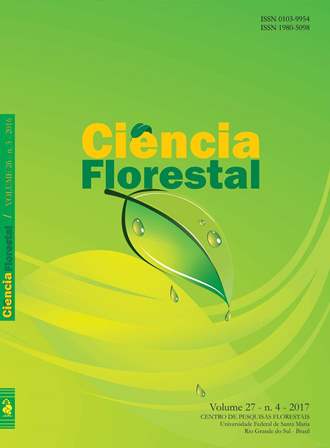LANDSLIDES AND FOREST FRAGMENTATION IN THE MOUNTAIN RANGE REGION OF RIO DE JANEIRO STATE
DOI:
https://doi.org/10.5902/1980509830321Keywords:
forest landscape dynamics, extreme natural events, landscape metric indexes.Abstract
Forest fragmentation is a process in which continuous natural vegetation areas are divided into patches of different sizes, originated by human activities or natural causes associated with environmental changes and high magnitude events. This work aims to characterize and to analyze the dynamics of forest fragmentation and the vulnerability of disturbance patches resulting from landslides, originated by heavy rainfall events that occurred in the mountain ranges of Rio de Janeiro state in the year 2011. The fragmentation pattern before and after the events was evaluated by the use of landscape metric indexes, extracted from land cover and landslide scars maps made by the analysis of satellite images. The indexes show a 6% reduction of the forest area and an increase of 107% in the number of forest patches, especially of small ones. A loss of 17% of forest core area and an increase of 43% in the number of forest cores and of 28% of edge density has occurred. The distance from the nearest neighbor decreased 46% due to the narrow and elongated shape of landslide scars. The overall results show that the rainfall events have caused an intensification of the historical process of forest fragmentation, promoting an increase of the ecological vulnerability and instability of the forest remnants, highlighting how high magnitude natural events can cause rapid landscape changes.







